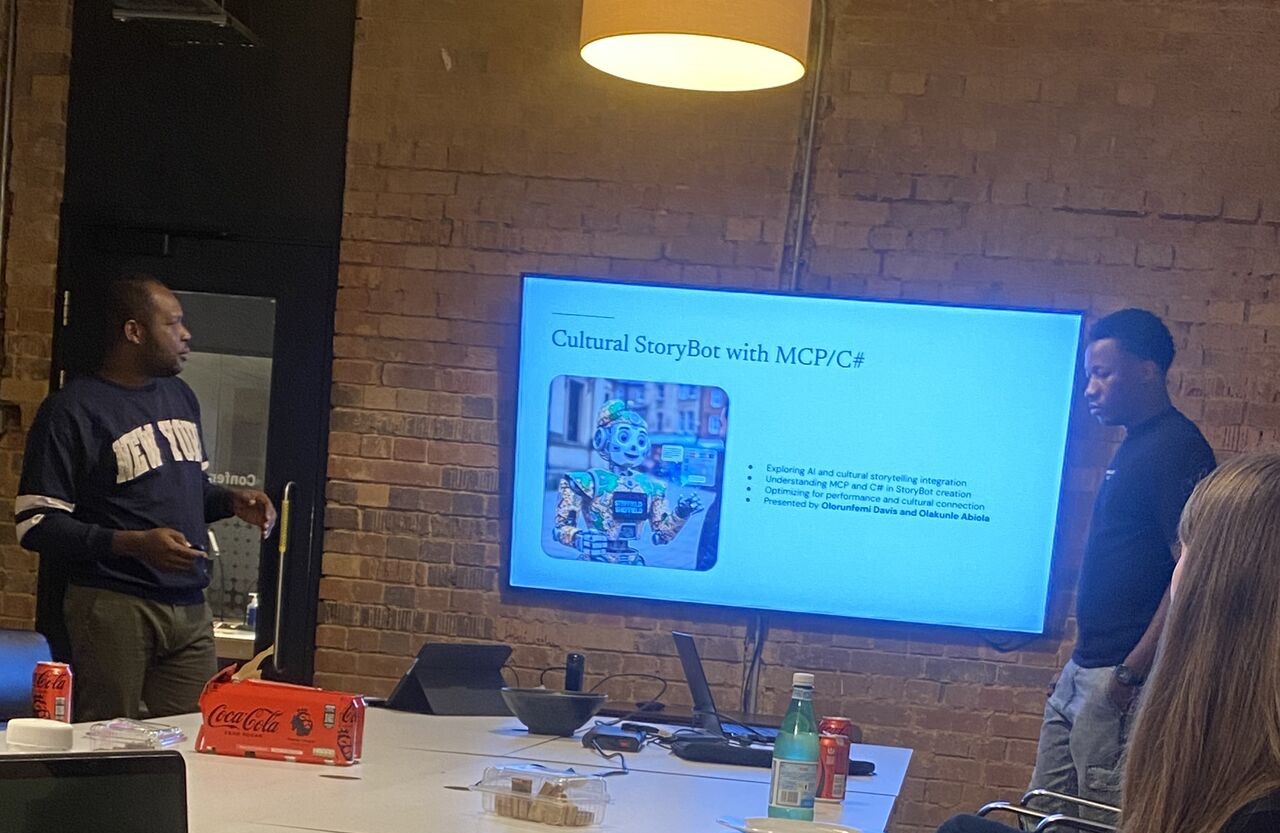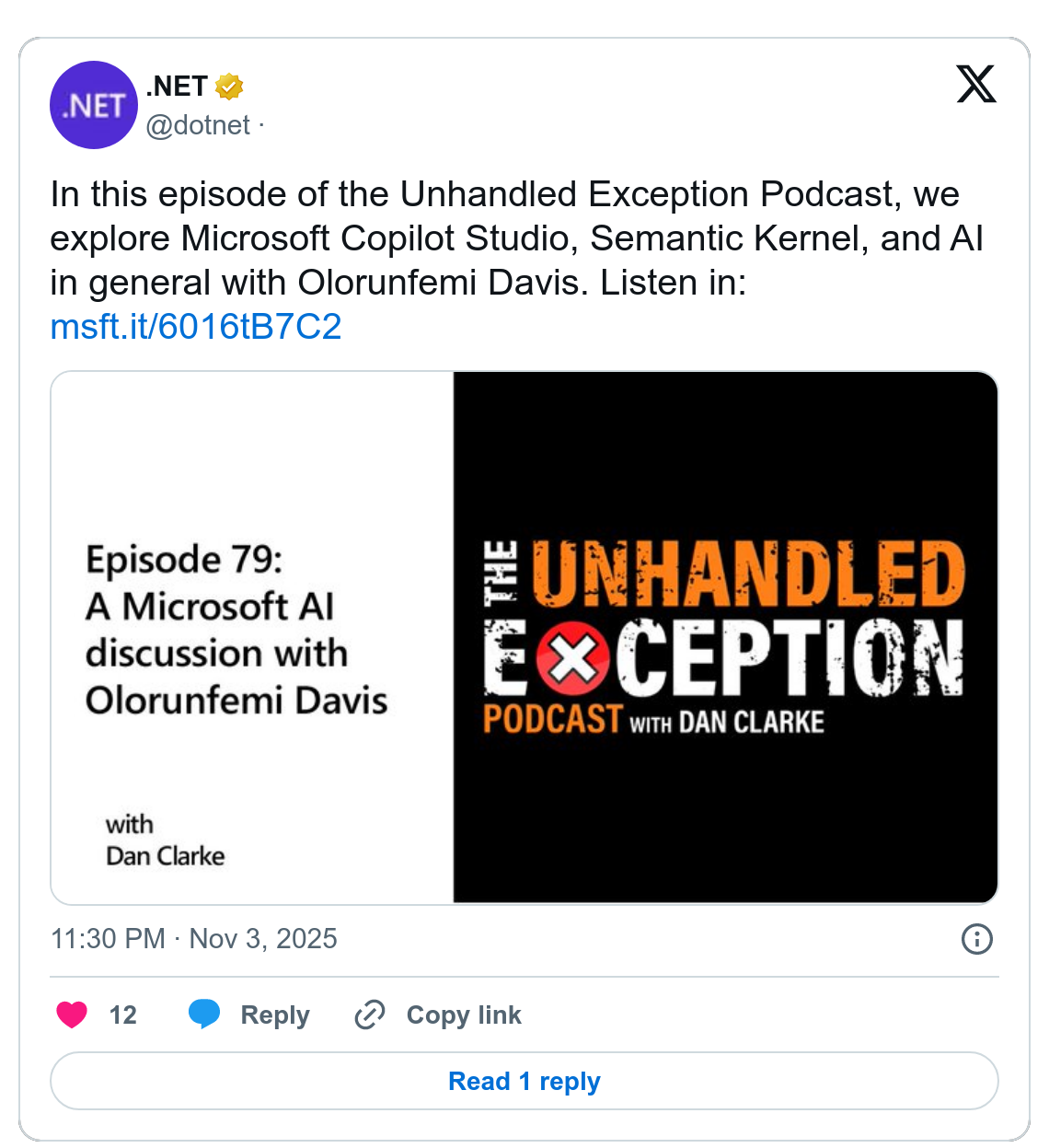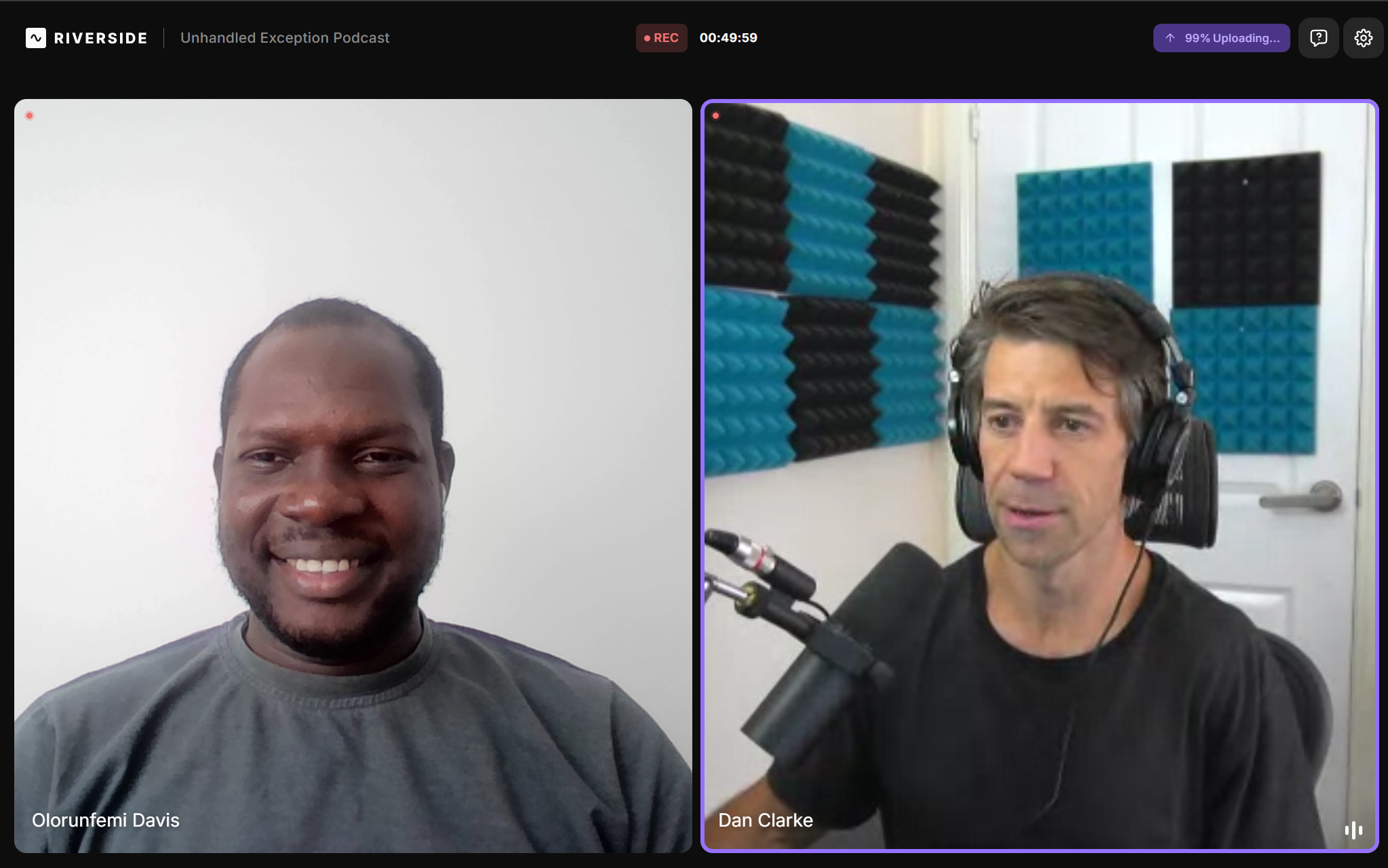
Crafting a Cultural StoryBot with MCP and C# at .NET Sheffield
Recap of our in-person .NET Sheffield event: Building a cultural StoryBot with MCP, C#, and AI—blending cultures.
I recently had the pleasure of joining Dan Clark on the Unhandled Exception Podcast for a fascinating conversation about the current and future landscape of AI in the .NET ecosystem. It was a wide-ranging discussion covering everything from high-level business tools to the nitty-gritty of developer frameworks.

To make things even more exciting, the episode was featured by the official .NET account on X (formerly Twitter), which was a fantastic honor!

For anyone who missed it, I wanted to share a recap of the key topics we explored.
We kicked things off by diving into Microsoft Co-pilot Studio. I explained that it’s a powerful tool for businesses to integrate AI into their workspace, enabling the rapid creation of interactive chatbots for websites. With just a URL, Co-pilot Studio can scan your site and deploy a conversational AI, which you can then enhance with your own knowledge base using MCP (Microsoft Co-pilot) connectors. It’s a prime example of how low-code platforms are evolving with generative AI.
The term “agent” is everywhere right now. I offered my definition: an agent is essentially a connector that bridges an application with a large language model (LLM). It takes context from your application (like your IDE or CRM), sends it to the model for processing, and returns the result. Companies are now creating agents just as they create SDKs, providing a new way for developers to integrate with their products. I believe we’re heading towards a future where agents become as ubiquitous as microservices are today.

A significant part of our chat focused on the big question: how is AI changing the job of a developer? We discussed the fear that AI will replace jobs, similar to the push for self-driving cars. My take is that an evolution is imminent. While junior developers might feel the immediate impact, the entire software development lifecycle is set to change.
The key is to adapt. The phrase “You won’t lose your job to AI, but to a developer who uses AI” is true, but it goes deeper. The skills required are shifting from pure coding to prompt engineering, understanding AI-generated code, and untangling the “rabbit holes” that AI can sometimes lead you down.
For the .NET developers listening, we explored two key technologies:
Semantic Kernel: This is Microsoft’s SDK for integrating with LLMs. It simplifies complex tasks like chain-of-thought prompting, combining different input types (text, images, audio), and fine-tuning prompts to get the best results. It abstracts away the need to make raw REST API calls, allowing you to leverage the full power of C# for memory management, object lifecycle, and more when building AI features.
MCP (Microsoft Co-pilot) Servers: We talked about how MCP servers are blowing up in popularity. I explained them as web APIs that expose “tools” instead of endpoints, designed specifically for an LLM to call. The LLM uses the tool’s description to decide when to call it to fulfill a requirement, allowing your AI application to interact with databases, downstream services, or even the local file system. It’s an incredibly powerful way to give your AI real-world capabilities.
Towards the end, we touched on a more philosophical issue: the “black box” problem. As AI models become more sophisticated, they might start creating code or even new programming languages that are more efficient but incomprehensible to humans. This raises questions about accountability, troubleshooting, and ownership. It’s a challenge that the industry will need to address as we move towards more AIdriven development.
It was a fantastic and thought-provoking conversation. The pace of change in AI is incredible, and it’s an exciting (and slightly daunting) time to be a developer. The key is to stay curious, keep learning, and embrace the new tools that are emerging.
A huge thank you to Dan Clark for having me on the show!
You can listen to the full episode here: Episode 79: A Microsoft AI discussion with Olorunfemi Davis
I am a Senior Software Engineer with a strategic, platform-focused mindset and a passion for computing, mathematics, and research. I specialize in architecting and optimizing secure, high-performance backend systems and web applications across Google Cloud. As a certified Generative AI Leader from Google Cloud, I possess deep knowledge of Google’s AI offerings and their practical application. Beyond my technical expertise, I am passionate about mentoring, fostering collaboration, and driving excellence within the developer community.